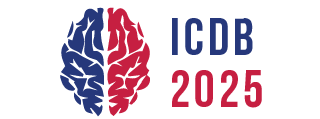2nd International Conference on
Dementia and Brain Disorders
November 06-07, 2025 | London, UK
Radisson Hotel & Conference Centre London Heathrow
Address: Building A, Bath Road, Heathrow Boulevard, Sipson, West Drayton, UB7 0DU, United Kingdom
Address: Building A, Bath Road, Heathrow Boulevard, Sipson, West Drayton, UB7 0DU, United Kingdom
Addiction and Brain Disorders
Addiction and Brain Disorders
Addiction is intricately linked to brain disorders, disrupting neural circuits and function. Substance abuse alters the brain's reward system, leading to compulsive behaviors and diminished self-control. Neurotransmitter imbalances exacerbate the cycle, perpetuating addiction. Chronic substance use induces structural changes in the brain, particularly in areas governing decision-making and impulse control. Understanding addiction as a brain disorder highlights the need for comprehensive treatments addressing both physiological and psychological aspects. Combining pharmacological interventions with behavioral therapies is crucial for effectively managing addiction and promoting long-term recovery.
- Neurochemistry
- Dopaminergic Dysfunction
- Neural Plasticity
- Reward Circuitry
-
Cognitive Impairment
Related Sessions
Tags
- Addiction and Brain Disorders Conferences
- Addiction and Brain Disorders Exhibitions
- Addiction and Brain Disorders Summit
- Addiction and Brain Disorders Congress
- Neuroscience Conferences
- Neurology Conferences
- Brain Health Conferences
- Neurodegenerative Disease Conferences
- Cognitive Health Conferences
- Neurobiology Conferences
- Neuroimaging Conferences
- Clinical Neurology Conferences
- Abstract Submission
- Registration
